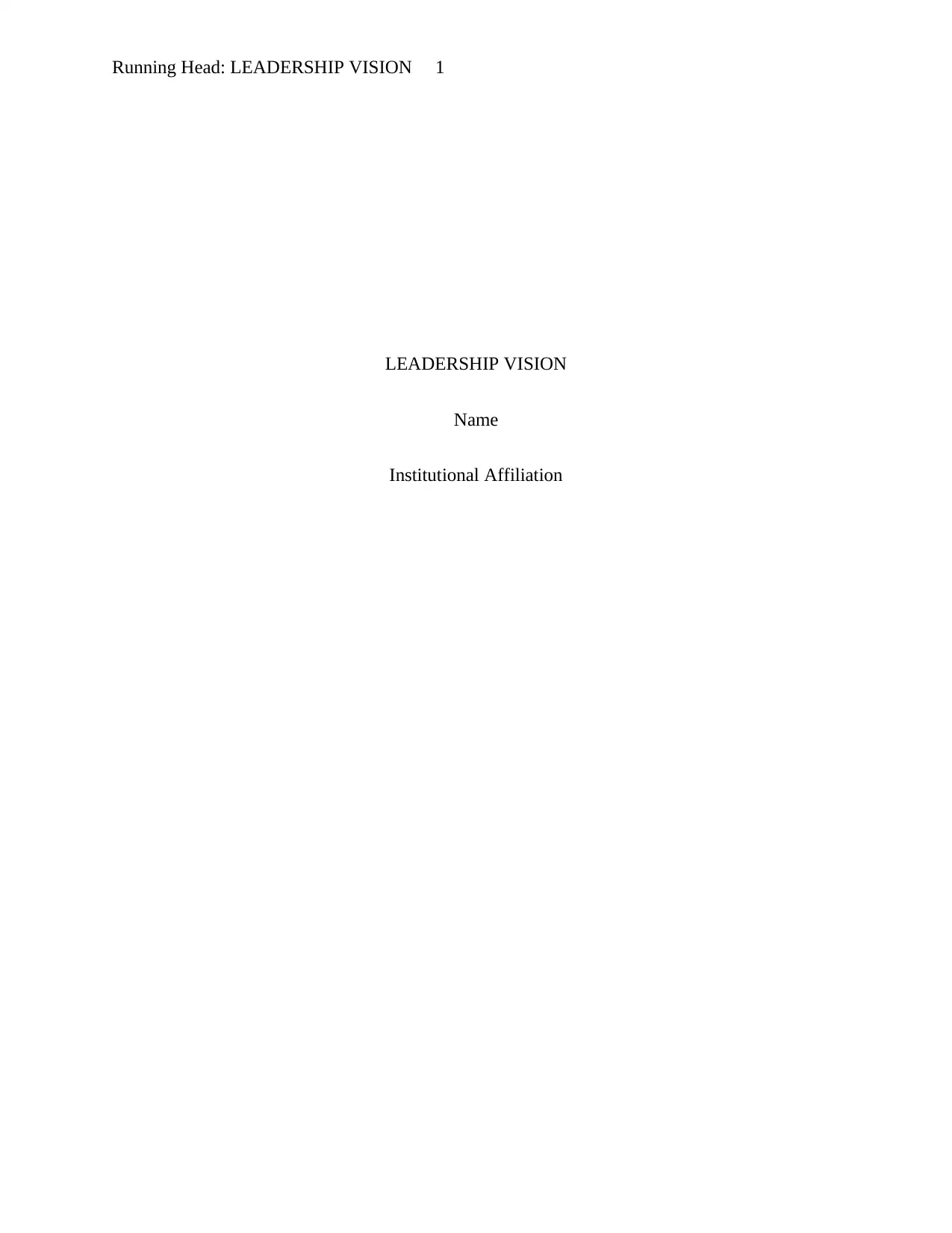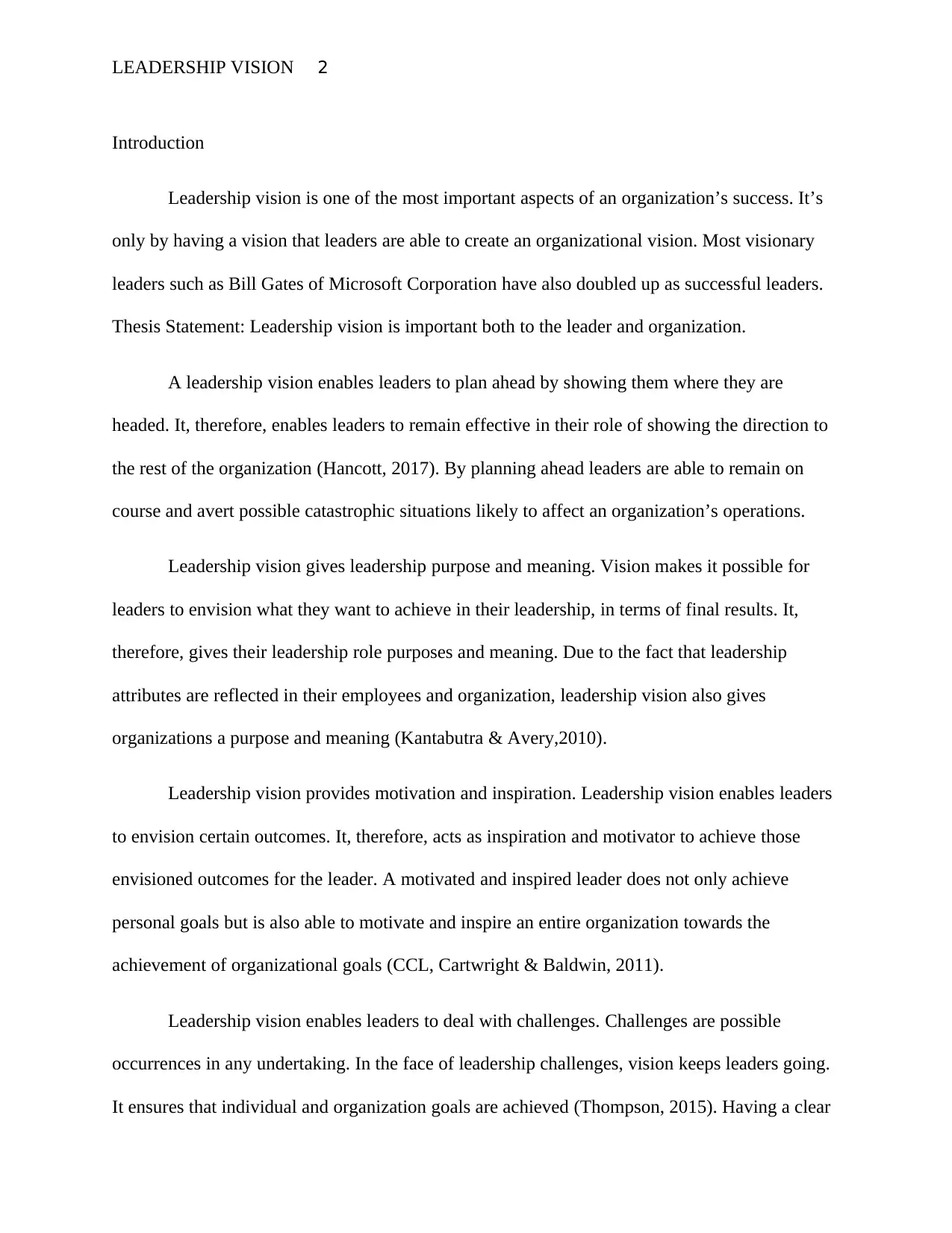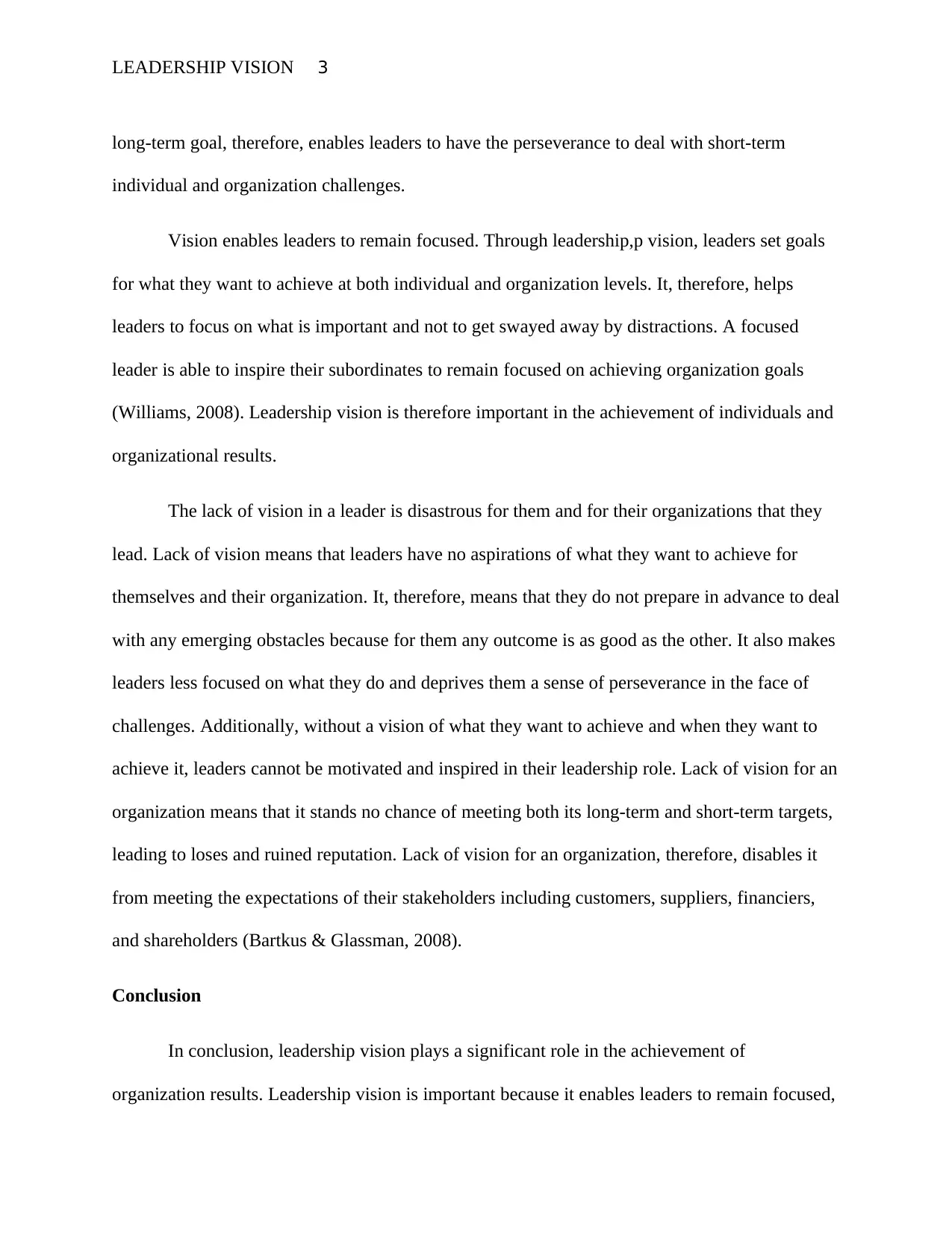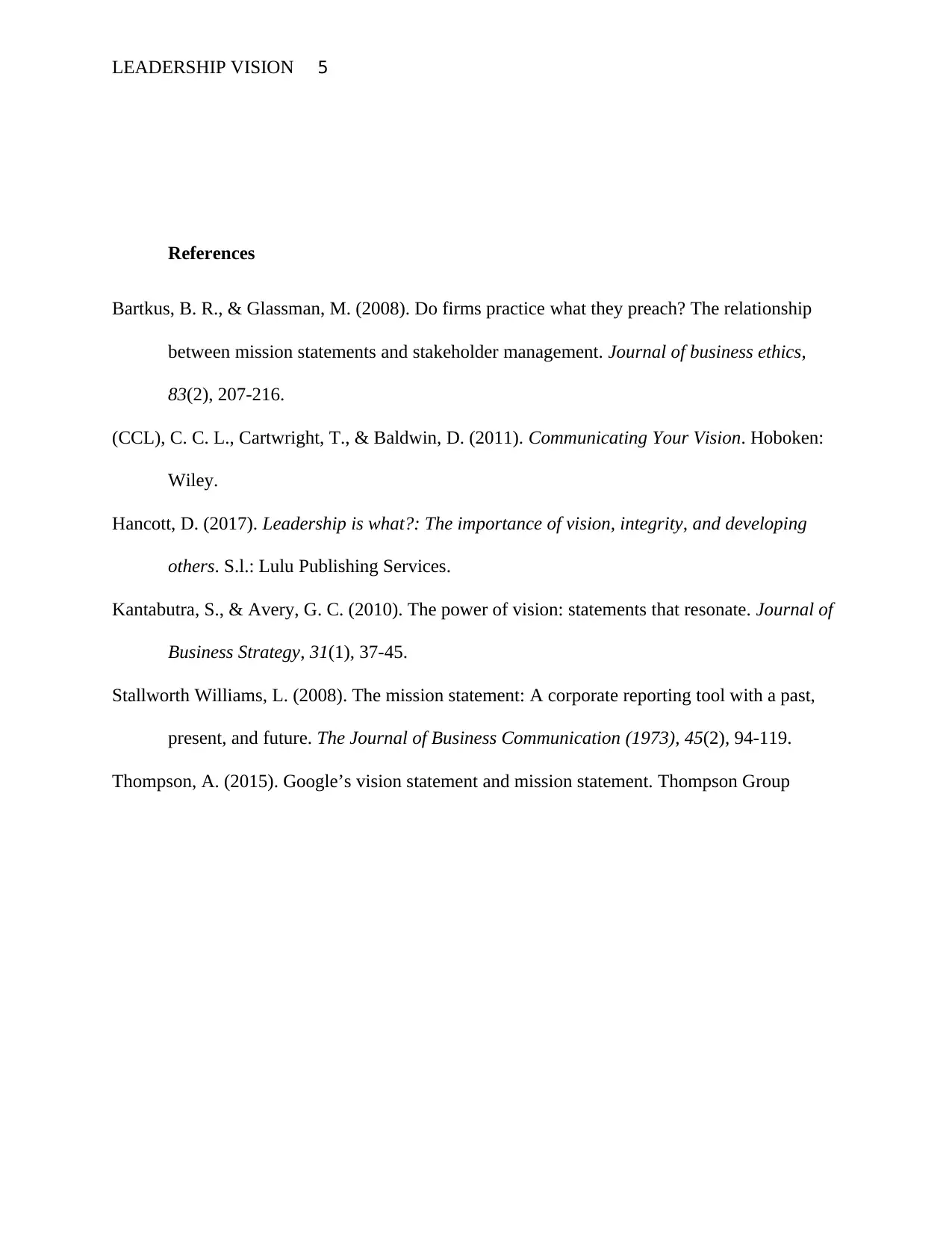The Role of Leadership Vision in Achieving Organizational Goals
VerifiedAdded on 2021/06/17
|5
|893
|139
Essay
AI Summary
This essay explores the critical role of leadership vision in organizational success. It begins by defining leadership vision and highlighting its significance for both leaders and organizations. The essay argues that a clear leadership vision enables leaders to plan strategically, providing direction and purpose while enhancing their effectiveness. Furthermore, it emphasizes the importance of vision in motivating and inspiring leaders and their teams to achieve organizational goals and overcome challenges. The essay also discusses how vision helps leaders stay focused and make informed decisions. Ultimately, the essay concludes that a strong leadership vision is essential for achieving both individual and organizational results, while the absence of such vision can be detrimental to a leader's effectiveness and an organization's overall performance. The essay includes relevant references to support its arguments.
1 out of 5











![[object Object]](/_next/static/media/star-bottom.7253800d.svg)